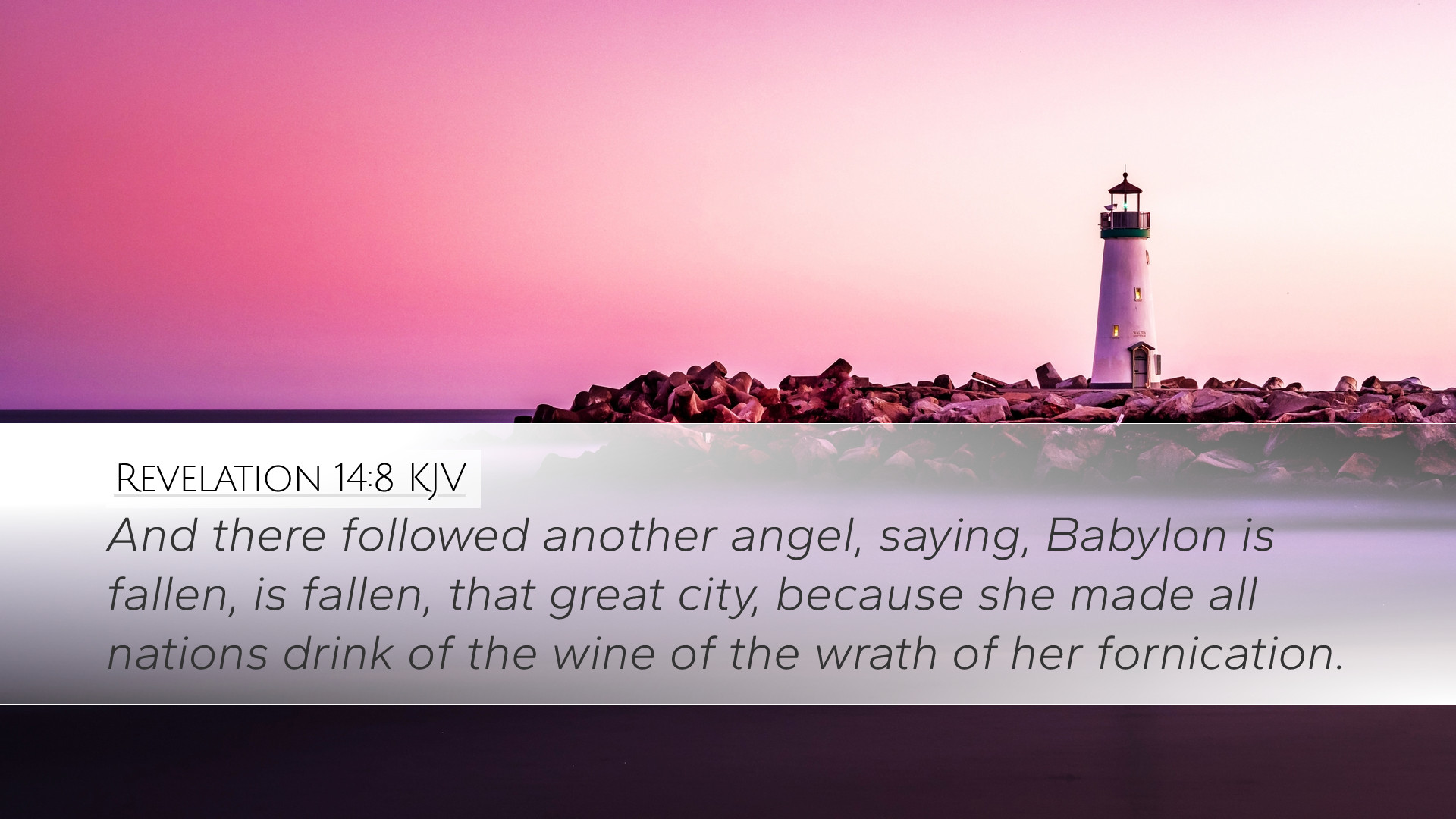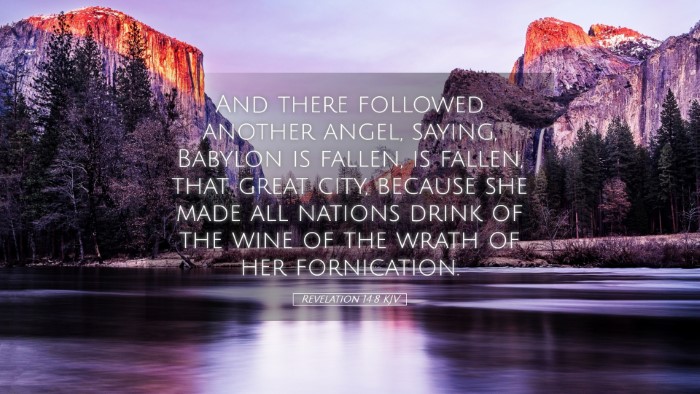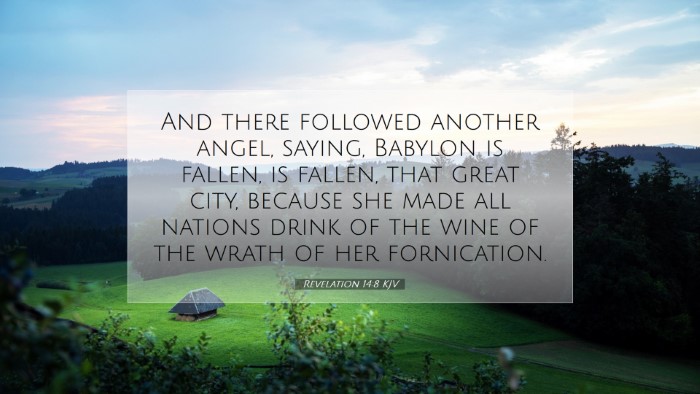Revelation 14:8 Commentary
Verse Text: "And there followed another angel, saying, Babylon is fallen, is fallen, that great city, because she made all nations drink of the wine of the wrath of her fornication."
Overview
This verse is critical in the prophesy of Revelation as it marks the proclamation of the fall of Babylon, which is symbolic of the ultimate judgment and destruction of corrupt human systems and religious practices. The angel's announcement serves as both a warning and a declaration of God's justice and righteousness.
Insights from Matthew Henry
Matthew Henry emphasizes the catastrophic nature of the fall of Babylon. He suggests that this 'great city' represents not merely a physical location but a spiritual entity characterized by pride, wealth, and idolatry. The repetition of "is fallen" indicates the certainty and finality of judgment. It reflects God's unwavering justice against systems and practices that lead nations into sin.
Insights from Albert Barnes
Albert Barnes interprets Babylon as a symbol for all that is corrupt in the world—particularly in terms of its seductions and influences that lead people away from God. The "wine of the wrath of her fornication" signifies the intoxicating allure of sin and rebellion against God. Barnes notes that the angel's message highlights the consequences of willful disobedience, which leads to spiritual and moral decay among nations.
Insights from Adam Clarke
Adam Clarke offers a detailed examination of Babylon's fall, which he interprets as an inevitable outcome of divine judgment against systemic evil. Clarke posits that the term "fornication" here represents spiritual adultery—turning away from true worship to embrace worldly and sinful practices. He calls attention to the dire implications of this fall, encouraging believers to recognize and resist similar influences in their own contexts.
Theological Implications
- Symbolism of Babylon: Understanding Babylon as a representation of worldly systems and unfaithfulness to God helps readers grasp the broader implications of this prophecy.
- God's Justice: The verse reinforces that God will judge all forms of evil and injustice. It provides a call to holiness and vigilance against forces that draw believers away from their faith.
- Warning to Nations: The proclamation serves as a warning not only to the original readers but to contemporary nations about the perils of turning away from divine principles.
Contextual Reflections
The placement of this verse within Revelation is significant. It follows visions of the 144,000 redeemed and the eternal gospel being proclaimed. The fall of Babylon contrasts sharply with the protection and preservation of God's people. This juxtaposition serves to highlight God's sovereignty in the unfolding narrative of human history.
Application for Present-Day Believers
- Spiritual Discernment: Believers are urged to be discerning about the influences they embrace and to stand firmly against spiritual compromises.
- Call to Holiness: The verse challenges Christians to live lives marked by faithfulness, resisting the allure of a culture that promotes materialism and moral laxity.
- Hope in Judgment: The message also provides hope; believers can take comfort in knowing that God will ultimately triumph over evil, and justice will be served.
Conclusion
Revelation 14:8 encapsulates profound themes of divine judgment, the fall of corrupt systems, and the necessity of fidelity in the believer's walk with God. By combining the insights of various biblical commentators, we gain a richer understanding of the text that serves to inform us, admonish us, and ultimately inspire our spiritual journey.


